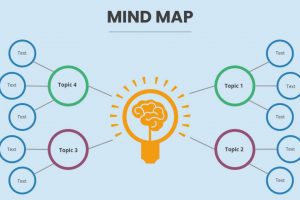Do you ever wonder why some students seem to effortlessly excel academically while others struggle to keep up? The secret often lies in their study skills. In this comprehensive guide, we’ll explore the fascinating world of study skills, covering a wide range of strategies and techniques that can help you unlock your full academic potential. Whether you’re preparing for exams, writing research papers, or simply aiming to become a more efficient learner, this article is packed with insights and practical examples to supercharge your study skills.

1. The Power of Effective Time Management
Effective time management is the cornerstone of successful studying. Let’s delve into some techniques and examples to master this critical skill:
1.1. Create a Detailed Study Schedule
- Example: Imagine you have a biology exam in three weeks. Create a study schedule that breaks down the topics to cover each day, allowing time for revision closer to the exam date.
1.2. The Pomodoro Technique
- Example: Use a timer to work for 25 minutes, followed by a 5-minute break. After completing four Pomodoro sessions, take a more extended break of 15-30 minutes. This technique is particularly useful for subjects requiring focused attention, like coding or mathematics.
1.3. Task Prioritization
- Example: If you have multiple assignments and one is due sooner than the others, prioritize the imminent deadline while ensuring you allocate sufficient time for long-term projects.
2. Elevate Your Note-Taking Skills
Effective note-taking is an art that can significantly boost your understanding and retention of information. Here are strategies and examples to enhance your note-taking abilities:
2.1. The Cornell Method
- Example: In a history lecture, you can apply the Cornell Method by dividing your notes into columns. In the left column, jot down key terms or questions, in the center column, record detailed notes, and in the right column, summarize the main points.
2.2. Visual Mapping
- Example: When studying a complex scientific concept like the water cycle, create a visual mind map that connects terms like precipitation, evaporation, and condensation with arrows and explanatory notes.
2.3. Digital Note-Taking Tools
- Example: Use note-taking apps like Evernote or OneNote to organize class notes, research findings, and web clippings. These tools allow you to search for specific information quickly.
3. Active Learning Techniques
Passive reading and memorization can only take you so far. Engaging actively with your study material is key to deepening your understanding. Let’s explore some strategies and examples:
3.1. Teaching Others
- Example: If you’re studying a Shakespearean play, explain the plot and characters to a friend or family member. Teaching forces you to simplify complex topics for better comprehension.
3.2. Problem-Solving Practice
- Example: In preparation for a physics exam, work through a variety of problem sets. Solve equations, analyze experiments, and apply theoretical knowledge to real-world scenarios.
3.3. Study Group Collaboration
- Example: Join a study group for a psychology course. Discuss case studies, theories, and research findings with peers, gaining new insights and perspectives.
4. Regular Review and Self-Assessment
Regularly reviewing and assessing your knowledge is essential for long-term retention. Here’s how you can integrate these practices into your study routine with examples:
4.1. Frequent Review
- Example: After a lecture or reading session, review your notes within 24 hours to reinforce your memory of the material. Quiz yourself on key points.
4.2. Flashcard Mastery
- Example: Create digital flashcards for foreign language vocabulary or scientific definitions. Regularly test yourself to ensure you retain the information.
4.3. Practice Tests
- Example: Prior to a history exam, attempt practice tests with questions similar to those you expect on the real exam. Evaluate your performance and identify areas for improvement.
Mastering study skills is a journey, not a destination. By harnessing effective time management, enhancing your note-taking prowess, embracing active learning, and incorporating regular review and self-assessment into your routine, you can significantly elevate your academic performance. Keep in mind that everyone’s learning style is unique, so don’t hesitate to experiment with these techniques and adapt them to suit your preferences. Success in academics is not just about working harder; it’s about working smarter, and these study skills will empower you to do just that. Happy studying!















Add Comment